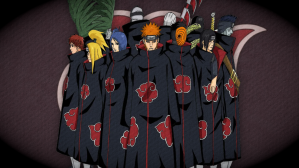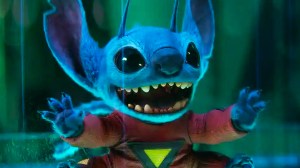It’s time to get rid of DC’s timeline and lean into the multiverse. That might sound like a radical idea, but really it’s anything but — not just in the grander history of comics, but also in the face of what DC’s history has become. Before Marvel Comics normalized the idea of a shared, interconnected universe, most DC Comics titles never really crossed over very much. Yeah, there were team-ups and you had a Justice League of America comic, but the idea of a single, monolithic story starring hundreds of characters over a sustained period of time was just…not the way comics were made. As the continuity-driven model started to take over, comics became more impenetrable to casual fans, and gained their reputation of being “soap operas for boys.” At the same time, DC abandoned the multiverse following the events of Crisis on Infinite Earths, leading to the post-Crisis, pre-Infinite Crisis DC Universe.
Videos by ComicBook.com
That universe, which ran for roughly 20 years, was the closest DC has ever come to having a singular vision of the history of the DC Universe. Hell, there was even a comic literally called The History of the DC Universe, which aimed to keep things straight after Crisis.
For years, continuity cops in editorial roles kept the trains running on time, with a relative minimum of glaring continuity errors (“relative” being key here). The Legion of Super-Heroes books kept using Superboy for a while after he had been written out of existence, but ultimately that was explained away. Villains in the Superman and Batman titles would show up for one or two stories, be arrested or replaced by another villain with the same name, so that not everyone recurred over and over. Hal Jordan’s hair grayed; Barry Allen stayed dead (and so did Jason Todd). It felt, for a while, like the DC Universe was a marathon rather than a treadmill — cosmic or otherwise.
Eventually, though, that started to change. From John Byrne to Jerry Ordway to Dan Jurgens, the Superman titles (for instance) had an incredibly tight continuity from, essentially, the end of Crisis on Infinite Earths until the new millennium 15 or so years later. Creative teams — not just Jurgens and Ordway, but Louise Simonson, Roger Stern, Tom Grummett, Jon Bogdanove, and others — stayed on big books at DC for dozens and dozens of issues, guiding a narrative and building an over-arching plot that could coast for years.
This was, for the most part, before the trade paperback market was really huge. Certain stories, like Crisis or The Death and Return of Superman, would routinely do big numbers — and obviously things like Sandman and Watchmen were evergreen hits in the bookstore and college bookstore markets — but single issue comics was where the money was. Throughout the ’90s, it wasn’t uncommon for whole series to go completely un-reprinted, and even characters like Batman and Superman didn’t have every “big” story head to the trade.
That, obviously, is no longer the case. Around the same time that big names like Geoff Johns and Greg Rucka started to be able to wield enough power to rewrite history (Johns took away Hal Jordan’s gray hair and brought Barry Allen back, while the team that succeeded Jurgens and Simonson on the Superman titles reimagined John Byrne’s Krypton to fall more in line with its pre-Crisis counterpart), the trade paperback market was growing and the single-issue market was stagnating or shrinking.
At both Marvel and DC, the late ’90s saw the start of superstar creators who could basically walk onto a book and hit the reset button, ignoring (or at least, as in the case of Johns and Green Lantern, giving a token explanation and a handwave) existing continuity in favor of telling what they thought was the most compelling version of that character’s story they could manage.
Infinite Crisis and the parade of events — many of which were continuity- or universe-altering — that came after it largely threw everything out the window. Years or decades of intricate, interwoven continuity was tossed out as titles and characters were reinvented. Guy Gardner had become Warrior, discovering that he had some alien heritage and was able to get powers without the benefit of a Green Lantern ring — but when Johns decided a Green Lantern Corps was needed, Guy more or less forgot he had powers altogether and eagerly took the ring — and his old, pre-Warrior personality, back.
There were certainly elements of this at Marvel, too, but because DC had been so strict about its continuity for years, and because they were suddenly so incredibly lax, it felt more pronounced. That they launch a new story aimed at “officially” rewriting the universe (or multiverse)’s history every couple of years doesn’t help. Originally, Crisis on Infinite Earths did away with the multiverse because it felt like casual fans were unlikely to understand why there were so many different versions of their favorite character running around. Now, in a world where each new, big-name creator who takes on an A-list character completely rewrites everything about them, the multiverse feels like an obvious solution to a never-ending series of continuity-altering events that leave even the most dedicated readers uncertain as to what stories they’re supposed to care about.
It’s time to throw it all out.
In the course of just a few years, DC had Flashpoint, which rewrote reality, followed by Rebirth, which rewrote reality, followed by Doomsday Clock, which rewrote reality — all with the same stated goal of simplifying the universe and making it more appealing. And that doesn’t even get into the books NOT written by the same guy. Now we have Flash Forward and the upcoming Generations story, all of which have ties to Rebirth and Doomsday Clock, which were done as a reaction to the failure of the post-Flashpoint DC timeline. It’s a gourdian knot of timelines and continuities that make sense to absolutely no one. And even if, somehow, against all odds, Generations does what Convergence and 52 and The New 52: Futures End failed to do and creates a coherent timeline, that will change the next time a big-name writer has a cool idea.
Do you realize that the biggest change Brian Michael Bendis has made to the Superman titles was to have Clark reveal his identity and wrestle with the challenges that throws at him and Lois — and this is in a Superman title that comes just about 3 years after the last pre-Rebirth creaive teams has Lois out Superman’s secret identity, leading to a lengthy rumination on what that means for Superman and Lois? They’re doing the same story over again — a story that wasn’t especailly popular the first time — and at this point nobody even notices or cares anymore. That might mean it’s time to give up on a continuity that is supposed to stretch back to 1938 and focus on telling straightforward, entertaining stories that might, or might not, “count” in other writers’ books. Use the multiverse to explain away any problems, and just accept that each time there’s a relaunch or a new creative team, that’s essentially the start of a new generation for the character. James Bond this stuff, man.
Continuity used to be a means to an end — a way to tell stories that made sense to casual readers while rewarding longtime readers. Instead, it has become an end unto itself, with a never-ending series of navel-gazing “events” that focus less on telling a coherent story and more on what the universe will look like on the other side. And all the while, virtually every character in the DC Universe is so interwoven with every other character that you can’t take time out to develop characters or have a supporting cast that aren’t also superheroes, lest fans abandon the book for not being “important” to the continuity.
It doesn’t have to be this way.
The rise of the bookstore market and the trade paperback market have changed the way huge numbers of readers interface with comics. People are less concerned about why Superman isn’t wearing the same version of his costume from month the month and more concerned about why they can’t figure out the impenetrable numbering on trade paperbacks that reset not just when. anew team or idea is introduced, but when an event series unrelated to the main narrative demands a new #1.
This has come at the same time a generation of superstar creators, many of whom have very specific ideas about what the characters should be since they grew. up as hardcore fans themselves, have the power to essentially rewrite the universe around everyone else, forcing them to try and make sense of how “Flash War” doesn’t pay enough attention to Death Metal or whatever.
And all of this dovetails with the return of DC’s multiverse, and the ascendancy of the Arrowverse and other storytelling that has made the idea of a multiverse much more easily understandable for casual fans.
If you look at these things together, it seems like the last one has the potential to fix most of the problems presented by the first two.









